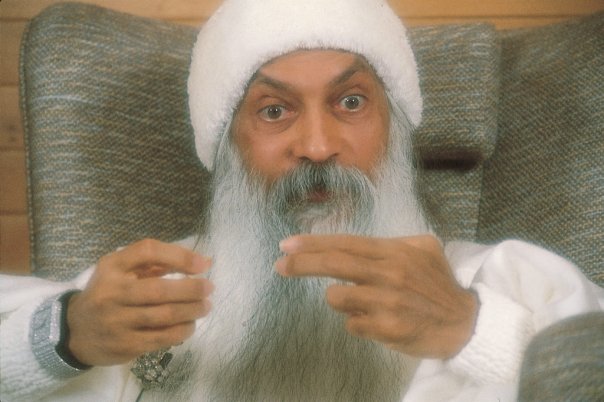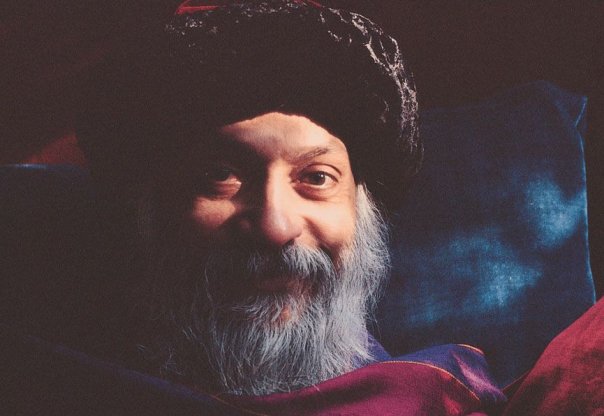Osho Quotes on Clinging
- A real sannyasin cannot claim any ownership. A sannyasin means one who has left all possessions, or all possessiveness, which is deeper and more basic. You can leave possessions, that is easy; but to leave possessiveness is difficult because it goes deeper in the mind. You can leave the world, but the mind goes on clinging to it.
- Don’t cling to anything. Clinging is the cause of our being unconscious. If you start unclinging a tremendous release of energy will happen within you. And that energy that was involved in clinging to things will bring a new dawn to your being, a new light, a new understanding, a tremendous unburdening — no possibility of any misery, agony, anguish.
- Clinging to anything, anything whatsoever, shows distrust. If you love a woman or a man, and you cling, that simply shows that you don’t trust.
- Cling to anything and the mind is back, because clinging is mind. Hold on to anything, depend on anything, and the mind is back, because the mind is dependence, slavery. Possess anything — even a spiritual method, even a method of meditation — become a possessor, and you are possessed by it. Whether you possess money or you possess a tremendously significant method of meditation, it doesn’t matter. Whatsoever you possess, you will be possessed by it and you will be afraid to lose it.
- When you don’t cling to the mind you can use it in a far better, far more efficient way, because the energy that was involved in clinging becomes available. And when you are not continuously in the mind, twenty-four hours a day in the mind, the mind also gets a little time to rest.
- The present is fleeing every moment …what is the point of clinging? Clinging will bring you misery.
- Only this eternal awareness can be the true home, nothing else, because everything else is a flux. And we go on clinging to the changing; then we create misery, because it changes and we want it not to change. We are asking for the impossible, and because the impossible cannot happen we fall into misery again and again.
- Religion, as such, is surrendering, relaxing. Don’t cling to anything. Clinging shows that you don’t trust life. Every evening, Mohammed used to distribute whatsoever he had collected in the day. All! Not even a single pai would he save for the tomorrow because he said that the same source that had given today, would give to him tomorrow. If it has happened today, why be untrusting about tomorrow? Why save?
- Remember: no attachment should grow, no clinging should grow. They are all against your independence, your freedom, your individuality.
- A child is not conscious. A child lives in a deep unconsciousness. By becoming conscious you are becoming adult, mature, so all that was clinging in your unconsciousness will disappear. Just as you bring light in a room and the darkness disappears; bring consciousness deep in your heart.
- The moment you become miserly you are closed to the basic phenomenon of life: expansion, sharing. The moment you start clinging to things, you have missed the target – you have missed. Because things are not the target, you, your innermost being, is the target – not a beautiful house, but a beautiful you; not much money, but a rich you; not many things, but an open being, available to millions of things.
- A miser misses tremendously. Because life is for those who share, life is for those who love, life is for those who are not too clinging to things — because then they become available to persons. To cling to a thing is to cling to something which is below you. And if you go on clinging to things which are below you, how can you soar high? It is as if you are clinging to rocks and trying to fly in the sky. Or you are carrying rocks on the head and trying to climb Everest. You have to throw them. You have to throw those rocks. You will have to unburden yourself.
- The heart of knowing is now. Knowledge is always of the past. Knowledge means memory. Knowledge means you have known something, you have experienced something, and you have accumulated your experience. Knowing is of the present. And how can you be in the present if you are clinging too much to knowledge? That is impossible; you will have to drop clinging to knowledge. And knowledge is acquired: knowing is your nature. Knowing is always now — the heart of knowing is now.
- One has to be spontaneous. One has to live moment to moment, neither thinking of the past, nor thinking of the future, nor clinging to the present.
- Clinging to the known is clinging to a corpse. It does not need courage to drop the clinging; in fact it needs courage to go on clinging to a corpse. You just have to see… That which is familiar to you, which you have lived — what has it given? Where have you reached? Are you not still empty? Is there not immense discontent, a deep frustration and meaninglessness? Somehow you go on managing, hiding the truth and creating lies to remain engaged, involved.
- One has to be very alert about dropping the method. Once you attain something, immediately drop the method, otherwise your mind will start clinging to the method. It will talk very logically to you, saying, “It is the method that is important.”
- One basic thing about suicide is that it arises only in people who are clinging very much to life. And when they fail in their clinging, the mind moves to the opposite pole. The function of the mind is of either/or: either it wants the whole, or none of it. The lust for life cannot be fulfilled totally, because life as such is a temporal thing; it is bound to end at a point, just as it began one day at a point. You cannot have a line with only the beginning; somewhere or other there is bound to be an end.
- Indifference looks like detachment, but it is not; indifference is simply no interest. Detachment is not absence of interest — detachment is absolute interest, tremendous interest, but still with the capacity of non-clinging. Enjoy the moment while it is there and when the moment starts disappearing, as everything is bound to disappear, let it go. That is detachment.
- Surrender is the highest form of love, the purest form of love. You will not feel dependent, because there will be no clinging in it. You will not feel dependent, because it is not out of loneliness that you have surrendered. If you have surrendered out of loneliness then it is not surrender at all, then it is something else.
- As time changes, rights change, wrongs change. And you can see it in your own life — every day things are different, and you go on clinging to your fixed ideas. The man who lives with fixed ideas lives a dead life. He is never spontaneous and he is never in a right relationship with the situation that exists. He is never response-able; he functions out of his old conclusions which are no longer relevant, he does not look at the situation itself.
- Make your life an aesthetic experience. And not much is needed to make it an aesthetic experience; just an aesthetic consciousness is needed, a sensitive soul. Become more sensitive, more sensuous, and you will become more spiritual. Priests have almost poisoned your body into a state of death. You are carrying paralyzed bodies and paralyzed minds and paralyzed souls — you are moving on crutches. Throw away all those crutches! Even if you have to fall and crawl on the ground, that is better than clinging to crutches.
- The past has to die. We have to drop our clinging with the past. What does it mean when you say that “I am a Hindu”? It means you cling to a certain past tradition. What do you mean when you say that “I am a Mohammedan”? You cling to something past.



lovely post!!!